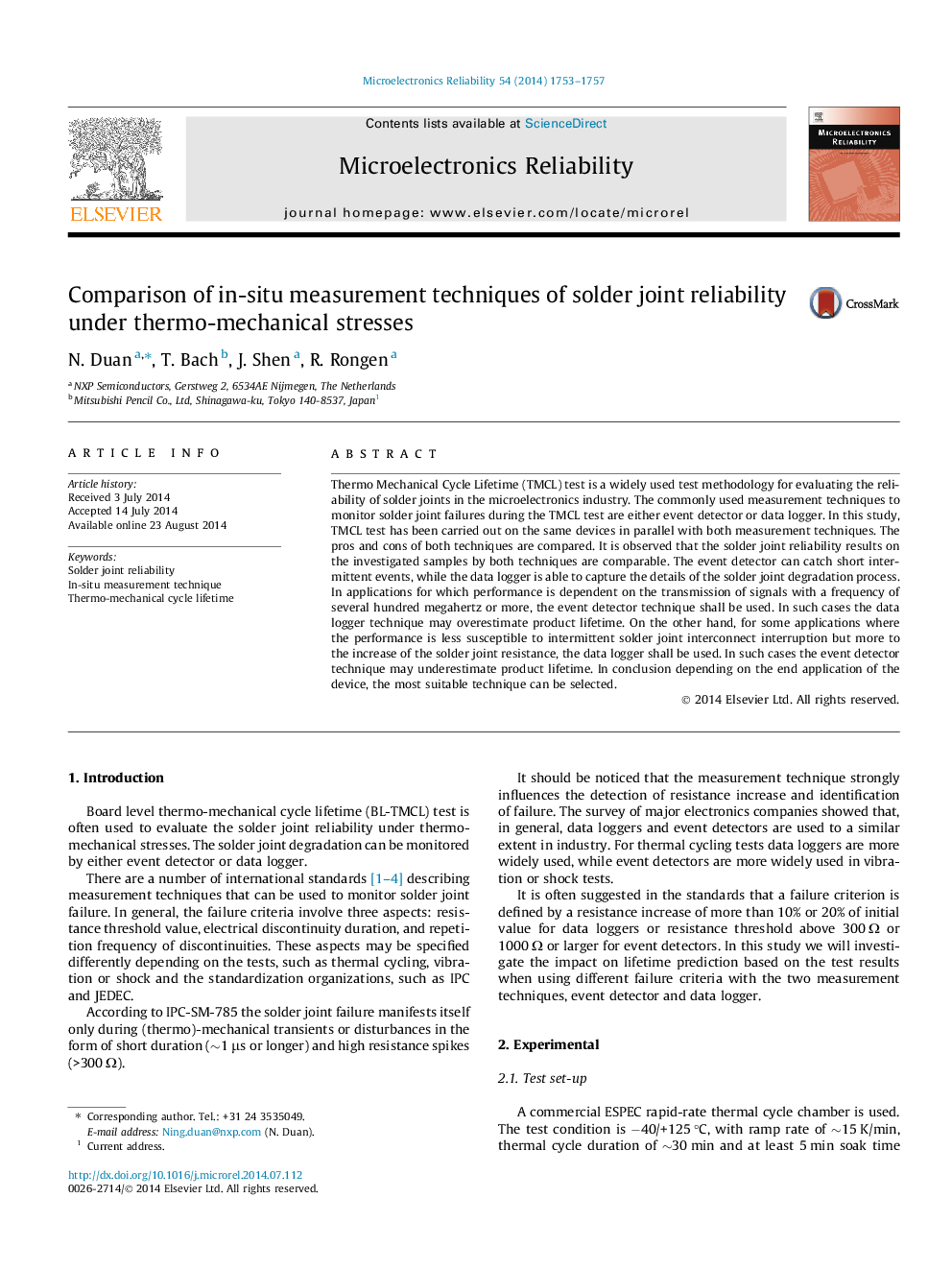| Article ID | Journal | Published Year | Pages | File Type |
|---|---|---|---|---|
| 6946843 | Microelectronics Reliability | 2014 | 5 Pages |
Abstract
Thermo Mechanical Cycle Lifetime (TMCL) test is a widely used test methodology for evaluating the reliability of solder joints in the microelectronics industry. The commonly used measurement techniques to monitor solder joint failures during the TMCL test are either event detector or data logger. In this study, TMCL test has been carried out on the same devices in parallel with both measurement techniques. The pros and cons of both techniques are compared. It is observed that the solder joint reliability results on the investigated samples by both techniques are comparable. The event detector can catch short intermittent events, while the data logger is able to capture the details of the solder joint degradation process. In applications for which performance is dependent on the transmission of signals with a frequency of several hundred megahertz or more, the event detector technique shall be used. In such cases the data logger technique may overestimate product lifetime. On the other hand, for some applications where the performance is less susceptible to intermittent solder joint interconnect interruption but more to the increase of the solder joint resistance, the data logger shall be used. In such cases the event detector technique may underestimate product lifetime. In conclusion depending on the end application of the device, the most suitable technique can be selected.
Keywords
Related Topics
Physical Sciences and Engineering
Computer Science
Hardware and Architecture
Authors
N. Duan, T. Bach, J. Shen, R. Rongen,
